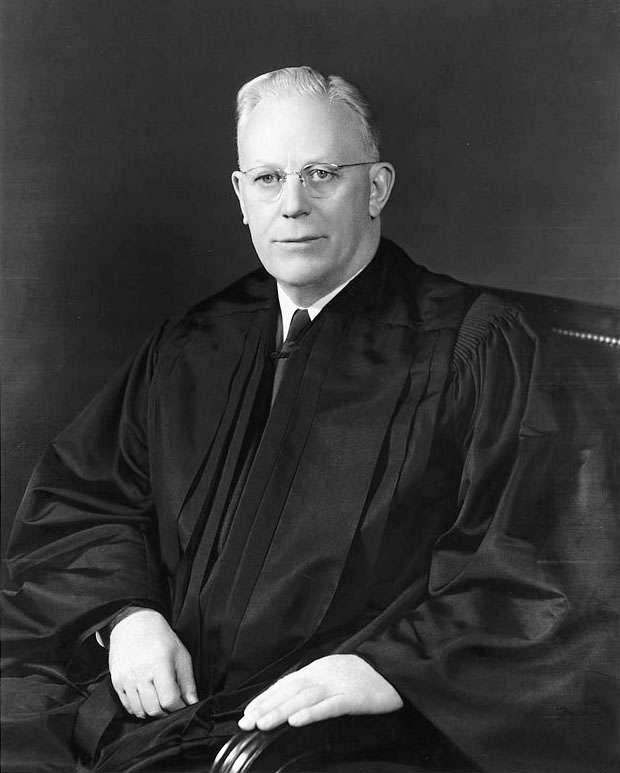The Volokh Conspiracy
Mostly law professors | Sometimes contrarian | Often libertarian | Always independent
Today in Supreme Court History: March 19, 1891
3/19/1891: Chief Justice Earl Warren's birthday.

Editor's Note: We invite comments and request that they be civil and on-topic. We do not moderate or assume any responsibility for comments, which are owned by the readers who post them. Comments do not represent the views of Reason.com or Reason Foundation. We reserve the right to delete any comment for any reason at any time. Comments may only be edited within 5 minutes of posting. Report abuses.
Please to post comments


Good thing he isn't still alive, he'd be "Cancelled" like a stamp.
This lawyer dipshit is poster boy for the principle that all Justices are fungible and highly predictable. No matter their political viewpoints, they will be pro-criminal, because the criminal is the client of the lawyer. They will promote big government and lawyer rent seeking. They will be an unmitigated catastrophe of dumbassery for the nation.
He would have looked better with longer hair, but in those days men always cut their hair short, always.
The hippie justice:
https://en.wikipedia.org/wiki/Melville_Fuller#/media/File:CJ_Fuller.tif
I don't think we should take too literalistic approach to dates. That kind of attitude can be a confining straitjacket, limiting our impulses toward justice.
Let's have him born on July 4, much more patriotic that way.
Speaking of dates in July, July 22nd (22/7) is a better Pi Day than 3.14.
Good point. For that you win a piece of pi: 3.1.
There is an old legal history anecdote about a 13th century Earl of Warren, who when challenged to establish the title to his land, displayed his family's sword, saying that the sword had won it, and the sword would defend it.
Which, frankly, displayed about the same level of careful nuance as most of Warren's jurisprudence.
And, in fairness, about the same level of effectiveness.
Mr. D.
Chief Justice Warren tendered his resignation to President Johnson in June 1968, contingent on the confirmation of his successor. By then it was clear that Richard Nixon would be the Republican nominee in the coming election and likely the next President, and Warren really, really did not want Nixon, perhaps the man he hated most in the world, to choose his successor.
The Warren-Nixon feud dated to 1946 and 1948, when then-California governor Warren refused to endorse Nixon in his successful House races. In the 1952 Republican nomination fight, the frontrunners were Dwight Eisenhower and Robert Taft, but Warren was the favorite-son candidate of California. who could hold the balance of power, and, possibly, might sneak to the nomination in event of a deadlock. In an event known in California political lore as "the Great Train Robbery", Nixon boarded the train carrying Warren delegates in Sacramento to the GOP convention in Chicago and lobbied them to switch their support to Eisenhower. Eisenhower would later state that Nixon's tireless efforts to secure the California delegation gave him the nod for the VP slot.
In 1960, when Nixon ran for Warren's old job as California governor, Warren was determined to undermine him. The Chief Justice traveled to California to be photographed with incumbent Democratic governor Edmund "Pat" Brown and let everyone know what a fine job he thought he was doing. Brown would later recall, "when Earl hated people, he hated them," and, after Brown's defeat of Nixon, Warren "laughed and laughed and laughed."
After conservatives in the Senate blocked the nomination of Associate Justice Abe Fortas, Johnson's pick to replace Warren, Warren considered withdrawing his resignation, but ultimately decided that would be too crassly political, even for him. Warren carried his grudge against Nixon to his deathbed, where, on July 9, 1974, mere hours before going to his reward, he was attended by his former Supreme Court colleagues Justices William O. Douglas and William Brennan. Grasping Douglas' hand, he pleaded that they must rule in favor of the Watergate special prosecutor in United State v. Nixon, which had been argued the previous day. The justices assured him they would not let him down.
https://www.smithsonianmag.com/history/inside-story-richard-nixons-ugly-30-year-feud-earl-warren-180962614/?msclkid=a3ff07cca7d811ecb52eb5bf68a5c05a
CORRECTION: Nixon ran for governor of California in 1962, not 1960.